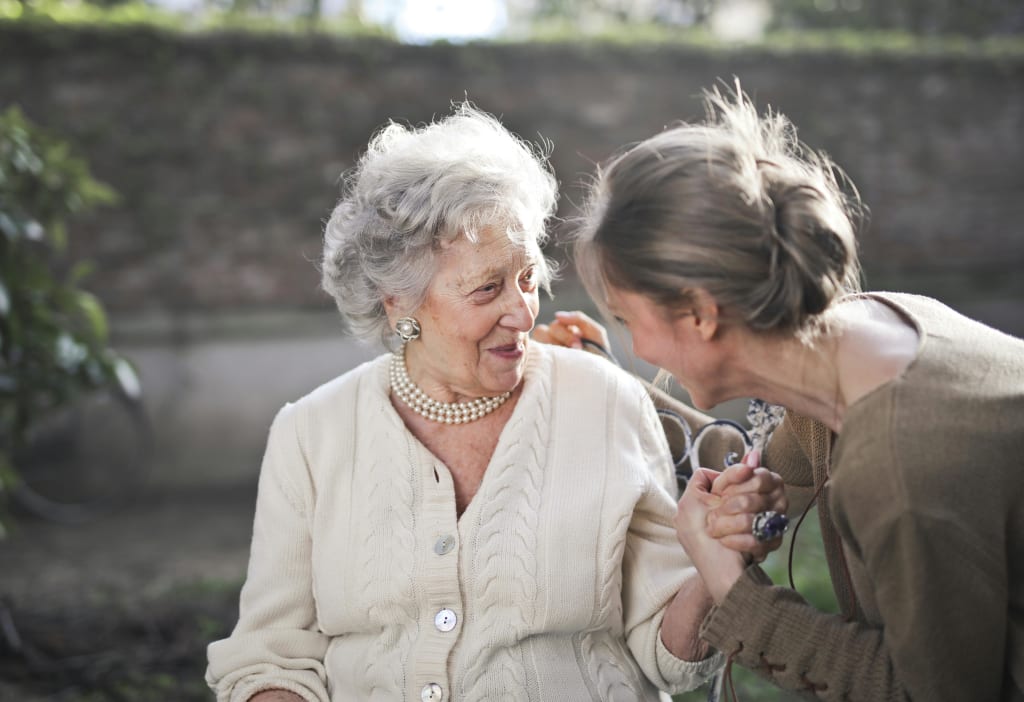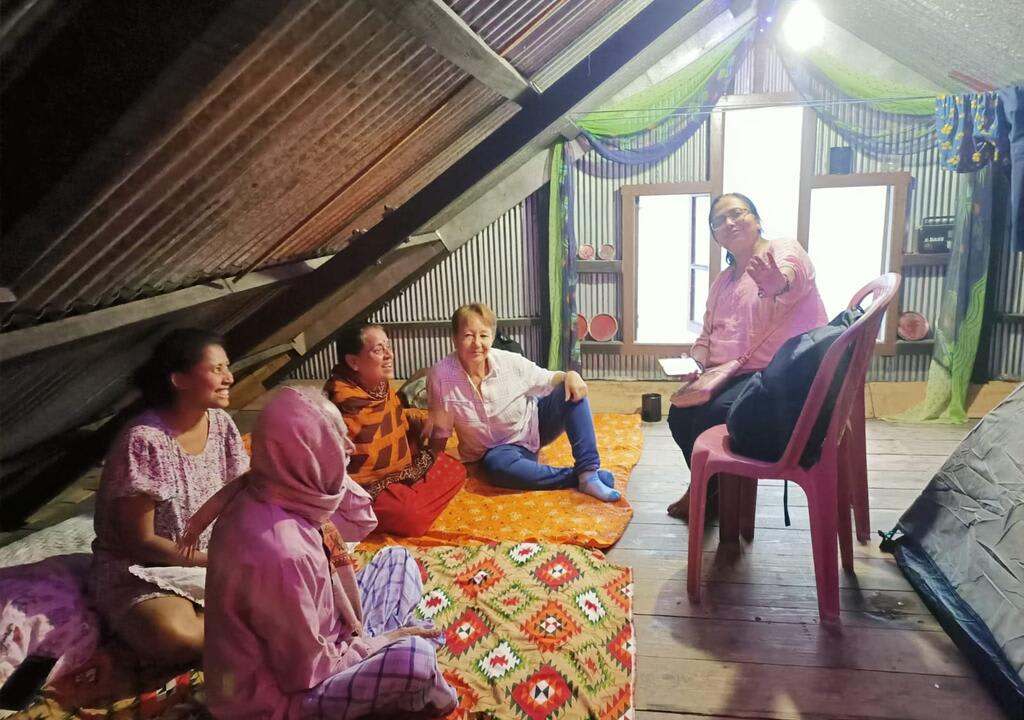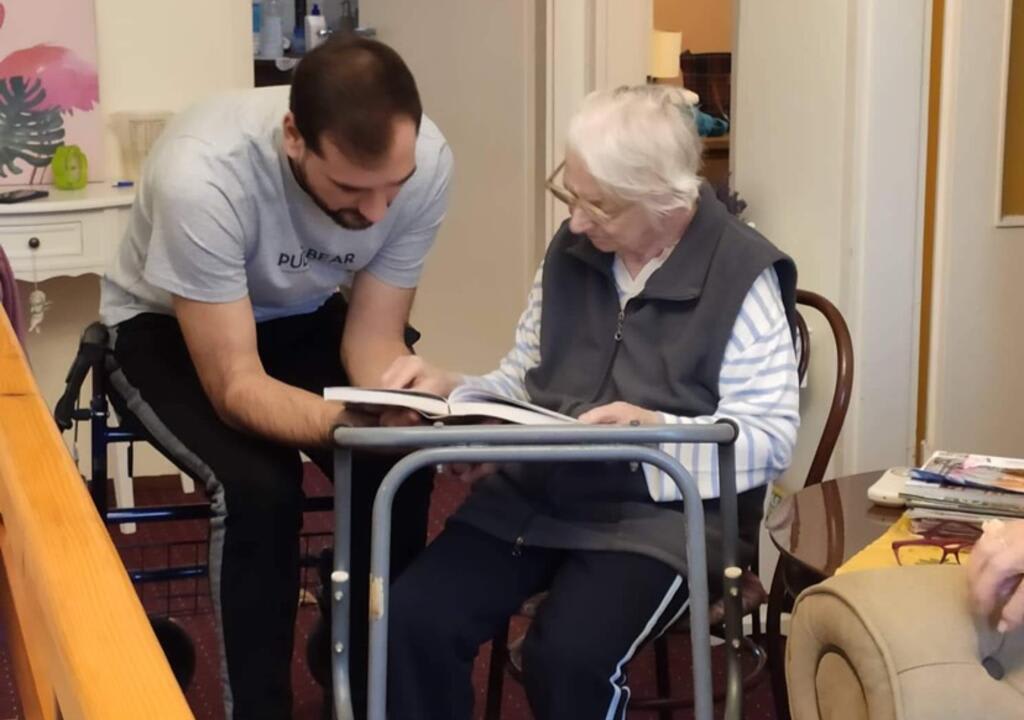Enhancing lives with companionship care: a complete guide
Discover the transformative power of companionship care, enhancing seniors' lives with emotional support and daily assistance.
8min

Companionship care shines brightly as a pillar of aid, offering solace not only to the recipients but also to their kin. It goes beyond mere assistance, reaching into the realms of emotional and societal health, which are vital throughout life's journey, and particularly during the golden years.
In this article, we're going to delve into the essence of companionship care. Discover how it enhances the well-being of the elderly, fosters their autonomy, and bolsters psychological wellness.
Moreover, we'll talk about the characteristics that define a stellar caregiver and how engaging in volunteer work through platforms like Worldpackers, which offers lodging and other perks in return for your services, can be a rewarding pathway.
You might also like to read:
What is companionship care?
At its heart, companionship care is about providing a helping hand and a listening ear. This service caters to individuals capable of handling their own physical well-being yet yearning for companionship or a bit of assistance with daily chores.
Differences between companion care and other home-based services
When considering care for our aging loved ones, the array of services available can be a tad overwhelming. Amidst a sea of home-based care choices, companion care prioritizes heartfelt companionship and enriching social exchanges over healthcare maneuvers.
Unlike home nurses or health aides who provide more clinical-based services such as wound care or medication management, companion caregivers specialize in non-medical tasks.
Tasks such as assisting with daily chores, running errands, and making sure the elderly stay connected through talks and pastimes form the crux of their role. By aiming to nurture autonomy and ward off isolation, the approach goes beyond mere assistance, touching on both physical presence and emotional support.

Benefits of companionship care for seniors
For the elderly, these advantages are deep and expansive, touching every aspect of their lives. A significant improvement in living standards is seen as seniors enjoy more autonomy and experience better mental well-being.
1. Enhancing quality of life
A major benefit touted by those who advocate for companionship care is its impact on enhancing life quality.
Having someone caring by their side mitigates the loneliness elders often face, markedly elevating their sense of happiness and life satisfaction.
This type of support allows elderly individuals to remain connected not only within their communities but also within themselves—fostering self-esteem and happiness along the way.
2. Maintaining independence
No one likes feeling helpless. One beauty behind companionship care lies in its ability to let our elders retain their autonomy as much as possible.
With someone there to gently assist when needed without taking over completely, it strikes just the right balance between help and hindrance—allowing seniors freedom while providing peace-of-mind safety nets like medication reminders or mobility aid during outings.

3. Improving mental health
Last but definitely not least: mental health benefits are through-the-roof fantastic here. Regular interactions provide cognitive stimulation which can delay—or even prevent—the onset of dementia-related conditions. Plus having someone reliable nearby lessens anxiety levels about facing emergencies alone.
So yes, although it might seem like simply hanging out or doing chores together, companionship caregiving crafts something far more meaningful beneath—it creates moments worth cherishing forever.
The scope of services in companionship care
Companionship care is like having a friend who's always there to lend a hand or share a laugh, but it’s so much more. This service spans from simply being there to listen to someone's life tales, all the way to aiding with everyday tasks.
Social interaction
Sometimes, all we really need is someone to chat with over coffee or reminisce about the "good old days". Social interaction forms the heart of companionship care. Engaging in various activities like board games, strolls, event attendance, or deep talks not only brightens a person's day but also wards off the shadow of solitude.
This isn't merely enjoyable; it's essential for nurturing our mental well-being. Research indicates that consistent social engagement not only alleviates stress but also diminishes the likelihood of experiencing depression in older adults. Caregivers often become cherished friends whose visits are eagerly anticipated.

Help with daily activities
Companionship caregivers also provide support with daily tasks. This could mean meal preparation, ensuring nutritious meals are not only planned but enjoyed together too. Or gentle reminders to take medications on time, because let’s face it; we all forget things sometimes.
Other activities that might be involved are running errands such as grocery shopping or accompanying clients on doctor's appointments.
Light housekeeping
Light housekeeping duties fall under companionship care too. This includes tidying up living area, which helps create an environment where one feels relaxed rather than stressed by cluttered surroundings.
It involves basic chores like doing dishes after sharing that lovely home-cooked meal mentioned earlier, laundry folding, and other simple tasks that contribute towards creating pleasant living conditions without taking away personal responsibility completely.
How to be a good companionship caregiver
Possessing the right traits can turn a good companionship caregiver into a great one. Patience, empathy, and communication skills are non-negotiables. But let's not forget about humor. Incorporating a bit of humor into your care routine can significantly uplift spirits, proving itself to be an indispensable element in nurturing relationships.
Flexibility stands as another cornerstone characteristic. Every day might throw you a new curveball, so being able to think on your feet will keep both you and those you care for at ease. And remember, trustworthiness is everything when you're invited into someone’s life and home.

Nurturing independence while ensuring safety
Maintaining independence is crucial for seniors' self-esteem and overall well-being—but safety should never take a back seat. Mastering this delicate equilibrium demands sharp vigilance to identify lurking dangers early on, avoiding the trap of excessive supervision.
Sometimes creativity comes into play here too; finding new ways for them to safely enjoy their hobbies or tasks independently could make all the difference in their happiness levels—and yours.
Fostering emotional connections through shared activities
Shared activities aren't just time fillers; they're opportunities to forge deeper emotional connections. Whether it’s playing cards, crafting together, or reminiscing over old photos, these moments matter greatly.
You’re not only there to assist; you’re there to listen—truly listen—providing comfort through presence alone sometimes. Therefore, an aptitude for empathy is crucial.
Volunteering with companionship care
If you're someone who loves to lend a hand and has a soft spot for making real connections, volunteering in companionship care might just be your calling. It's less about completing a to-do list and more about weaving together meaningful experiences for both yourself and the elders you assist.
The work exchange platform Worldpackers provides a way to find volunteer opportunities across the globe, allowing you to make a positive impact.
Check out some examples of positions currently available for volunteering with elderly care:
Companionship care in India
This host seeks compassionate and dedicated volunteers to provide support and companionship to elderly individuals in their community.
As a volunteer, you will have the opportunity to make a meaningful difference in the lives of seniors who need social interaction, assistance with daily activities, or simply a friendly presence.
In exchange for your help you will get three meals a day, a bed in a shared dorm, free laundry, access to bikes, free wi-fi, and other perks.

Key responsibilities:
- Spend quality time with elderly individuals, engaging in conversations, reading, or playing games.
- Be a friendly and empathetic presence, offering emotional support and a listening ear.
- Help with basic tasks such as meal preparation, light housekeeping, and organizing.
- Assist with mobility, if needed, and accompany seniors on short walks or outings.
- Provide gentle reminders for seniors to take their medications as prescribed.
- Ensure the safety and well-being of elderly individuals under your care.
- Be vigilant for any signs of distress or health concerns and report them promptly.
- Assist with transportation to medical appointments, grocery shopping, or other essential outings, if applicable.
“It was a lovely homestay, the host and host's mother went above and beyond to make me feel comfortable the moment I came there. So many home cooked Bengali meals. Some of the small tasks I did brought smiles that reminded me of helping my late grandma. Daily tasks were a little different then expected, but with a little communication we found a pattern that works. Prasenjit really has some cool projects going on that I told him I'd be happy to continue helping with after I leave”, said the volunteer Daniel, from the United States, who has contributed with this host through Worldpackers.
Click here for more information about this opportunity.
Volunteer in a small nursing home in Hungary
You can also make a difference in the lives of elderly individuals suffering from dementia or chronic illnesses at a care home in the serene village of Dóc, Hungary.

Located just 25 km from the beautiful city of Szeged, this quaint nursing home offers an opportunity for volunteers to gain valuable experience and have a positive impact on the lives of their residents.
As a volunteer, you will have the chance to spend quality time with the residents, forming meaningful connections and brightening their days. You will work closely with their dedicated nursing team, assisting with personal care activities such as showering and dressing. By being there for the residents, you will not only provide physical support but also emotional comfort and companionship.
They also welcome individuals passionate about cooking to join them in preparing healthy and delicious meals.
Your activities could include:
- Getting involved with personal care, assisting with feeding and meal serving;
- Helping the nurses with different health related task such as wound care, iv or injection administration;
- Picking up proscription from the Doctors surgery and collecting medication from the local pharmacy;
- Creating healthy meals;
- Updating their social media accounts, if you’re interested.
In exchange for your help for 25 hours a week, you'll get a bed in a shared room, three meals a day, free laundry, free events and use of their equipped kitchen.
Click here to apply for this volunteering position.
Elderly care in Quebec, Canada
This host is a retired teacher and translator who is looking for people to help him with companionship care because he has multiple sclerosis and uses a wheelchair. He’s a vegan and non-smoker, lives in Quebec and speaks French, English, and Spanish.
He's looking for someone to help for 20 hours per week, with tasks such as light housekeeping, helping him getting into and out of bed, preparing meals, and helping him eat. In exchange, volunteers will get free accommodation, breakfast, dinner, free laundry, fast internet access and 2 days off per week.
Click here if you're interested in this volunteer job.

Keep reading: Volunteer projects abroad: make a difference and have fun
FAQs in relation to companionship care
What does companionship mean in care?
In care, companionship means being there for someone. It's about sharing time, offering emotional support, and helping with daily tasks.
What is a companionship service?
A companionship service provides folks with company and assistance in their day-to-day life. It keeps loneliness at bay.
What is the difference between caregiver and companionship?
Caregivers often do medical tasks. Companions focus on social interaction and help around the house but don't give medical care.

As you've seen, companionship care is much more than simple assistance. Dive in with heart open, ready to learn and grow alongside those you help.
If you're interested in volunteering with elderly care or child care, set up a free profile on Worldpackers and start saving your favorite positions!












CRY
Apr 03, 2024
Good to read must be read informative post